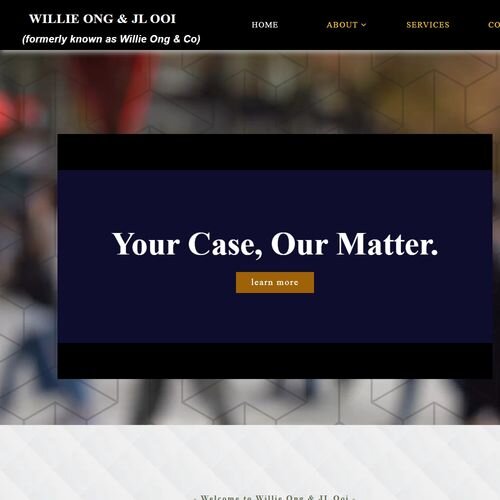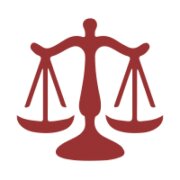Best Communications & Media Law Lawyers in George Town
Share your needs with us, get contacted by law firms.
Free. Takes 2 min.
List of the best lawyers in George Town, Malaysia
About Communications & Media Law in George Town, Malaysia
Communications & Media Law in George Town, Malaysia, regulates how information is produced, disseminated, and consumed through various media platforms. This field of law covers multiple aspects including telecommunications, broadcasting, digital media, intellectual property, advertising, and data protection. Given the rapid advancement of technology and the convergence of media platforms, Communications & Media Law is continually evolving. In Malaysia, these regulations aim to balance the need for freedom of expression with maintaining public order and protecting consumers.
Why You May Need a Lawyer
There are several situations where individuals and organizations might require legal assistance in this area:
- Content Creation and Distribution: Understanding content licensing, copyright issues, and censorship guidelines requires regulatory knowledge.
- Data Protection: With increased emphasis on privacy, companies must ensure compliance with personal data protection regulations.
- Defamation: In cases where individuals feel their reputation has been harmed by media outlets or online platforms.
- Telecommunications: Service providers might need legal counsel regarding telecommunications regulations and consumer rights issues.
- Advertising Compliance: Businesses need to adhere to advertising standards set by regulatory bodies.
Local Laws Overview
The Communications & Media landscape in George Town is governed by several key legal frameworks:
- Communications and Multimedia Act 1998: This law oversees the convergence of the telecommunications and broadcasting industries and covers licensing, content regulation, and consumer protection.
- Personal Data Protection Act 2010: Governs the processing of personal data in commercial transactions, ensuring the privacy of individuals is protected.
- Copyright Act 1987: Protects creative works and intellectual property, providing mechanisms to enforce copyright infringements.
- Media Council: A proposed body aimed at self-regulating the media and maintaining ethical standards.
Frequently Asked Questions
What is Communications & Media Law?
It's a legal field that regulates all forms of communications and media, ensuring compliance with laws on content, broadcasting, and more.
Who enforces media laws in Malaysia?
The Malaysian Communications and Multimedia Commission (MCMC) is the primary regulator responsible for enforcement.
What is defamation under Malaysian law?
Defamation involves making false statements that harm another's reputation. Both libel (written) and slander (spoken) are actionable.
Do I need permission to use someone else's content in my work?
Yes, using copyrighted material without permission can lead to legal actions unless it falls under fair use or public domain exceptions.
What rights do individuals have regarding personal data?
Under the Personal Data Protection Act, individuals have rights to access, correct, or require cessation of the processing of their personal data.
How is online content regulated in Malaysia?
Online content is subject to the same laws as traditional media, including regulations on hate speech, sedition, and more.
Are there advertising regulations in Malaysia?
Yes, advertising is regulated to prevent misleading claims and ensure truthfulness, especially regarding sensitive products.
What constitutes a breach of broadcasting standards?
Breach could involve airing illegal content, failing to meet content quotas, or not adhering to licensing requirements.
Can telecommunications companies access my personal data?
Companies must comply with data protection laws and can only access data for service provisioning and other permitted purposes.
What can I do if I'm facing media-related legal issues?
Consult a specialized lawyer to understand your rights and explore available legal remedies.
Additional Resources
If you're seeking more information or need assistance, the following resources may be helpful:
- Malaysian Communications and Multimedia Commission (MCMC): Regulatory body for communications and multimedia sectors.
- Bar Council Malaysia: Offers resources for finding legal professionals specializing in media law.
- National Consumer Complaints Centre (NCCC): Assists consumers facing issues with telecommunications providers.
Next Steps
If you need legal assistance, consider the following steps:
- Research: Familiarize yourself with basic communications and media laws relevant to your situation.
- Consultation: Contact a legal professional with expertise in Communications & Media Law to discuss your case.
- Documentation: Gather any relevant documents or evidence that may support your case.
- Know Your Rights: Understand your legal rights and obligations to make informed decisions.
Lawzana helps you find the best lawyers and law firms in George Town through a curated and pre-screened list of qualified legal professionals. Our platform offers rankings and detailed profiles of attorneys and law firms, allowing you to compare based on practice areas, including Communications & Media Law, experience, and client feedback.
Each profile includes a description of the firm's areas of practice, client reviews, team members and partners, year of establishment, spoken languages, office locations, contact information, social media presence, and any published articles or resources. Most firms on our platform speak English and are experienced in both local and international legal matters.
Get a quote from top-rated law firms in George Town, Malaysia — quickly, securely, and without unnecessary hassle.
Disclaimer:
The information provided on this page is for general informational purposes only and does not constitute legal advice. While we strive to ensure the accuracy and relevance of the content, legal information may change over time, and interpretations of the law can vary. You should always consult with a qualified legal professional for advice specific to your situation.
We disclaim all liability for actions taken or not taken based on the content of this page. If you believe any information is incorrect or outdated, please contact us, and we will review and update it where appropriate.











